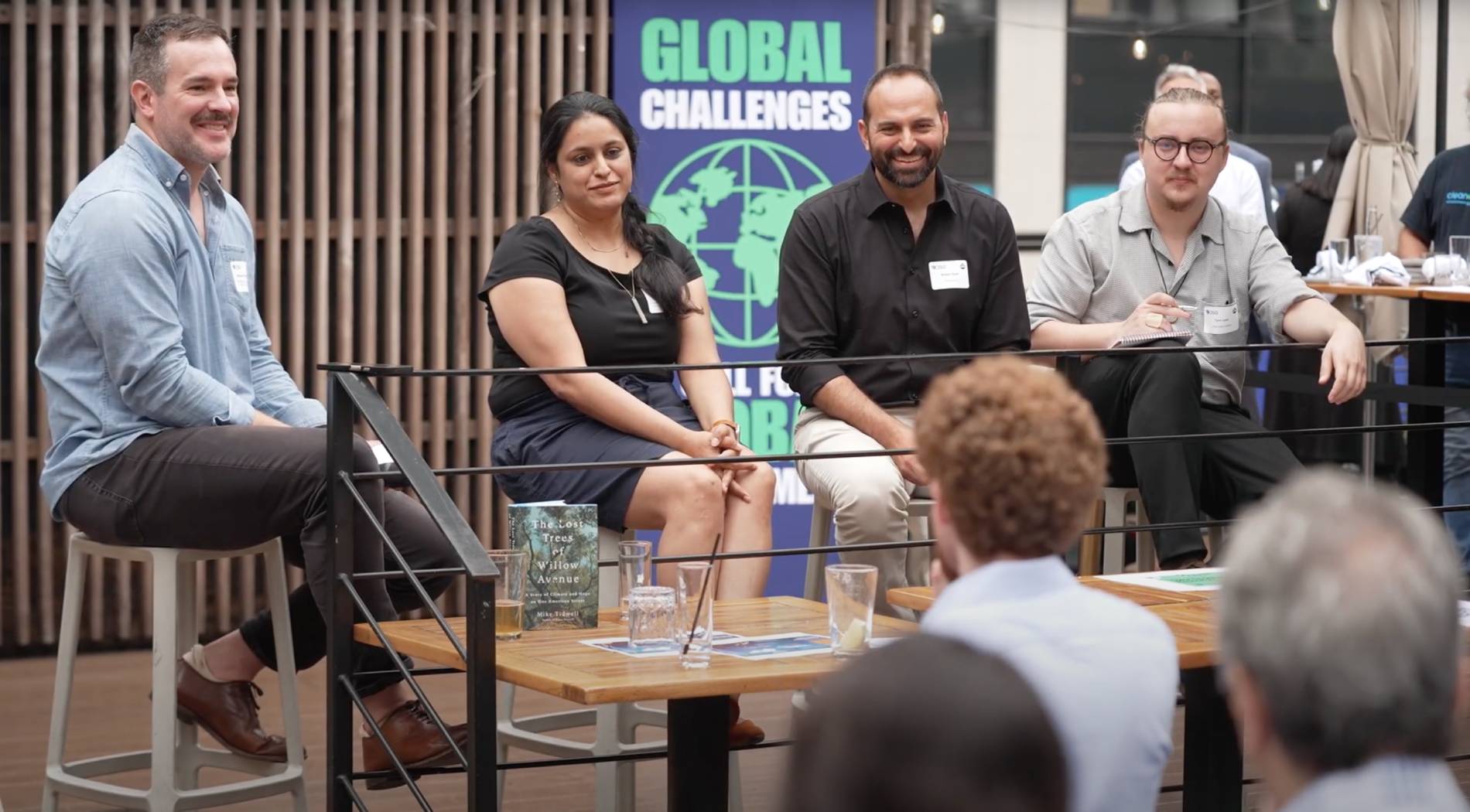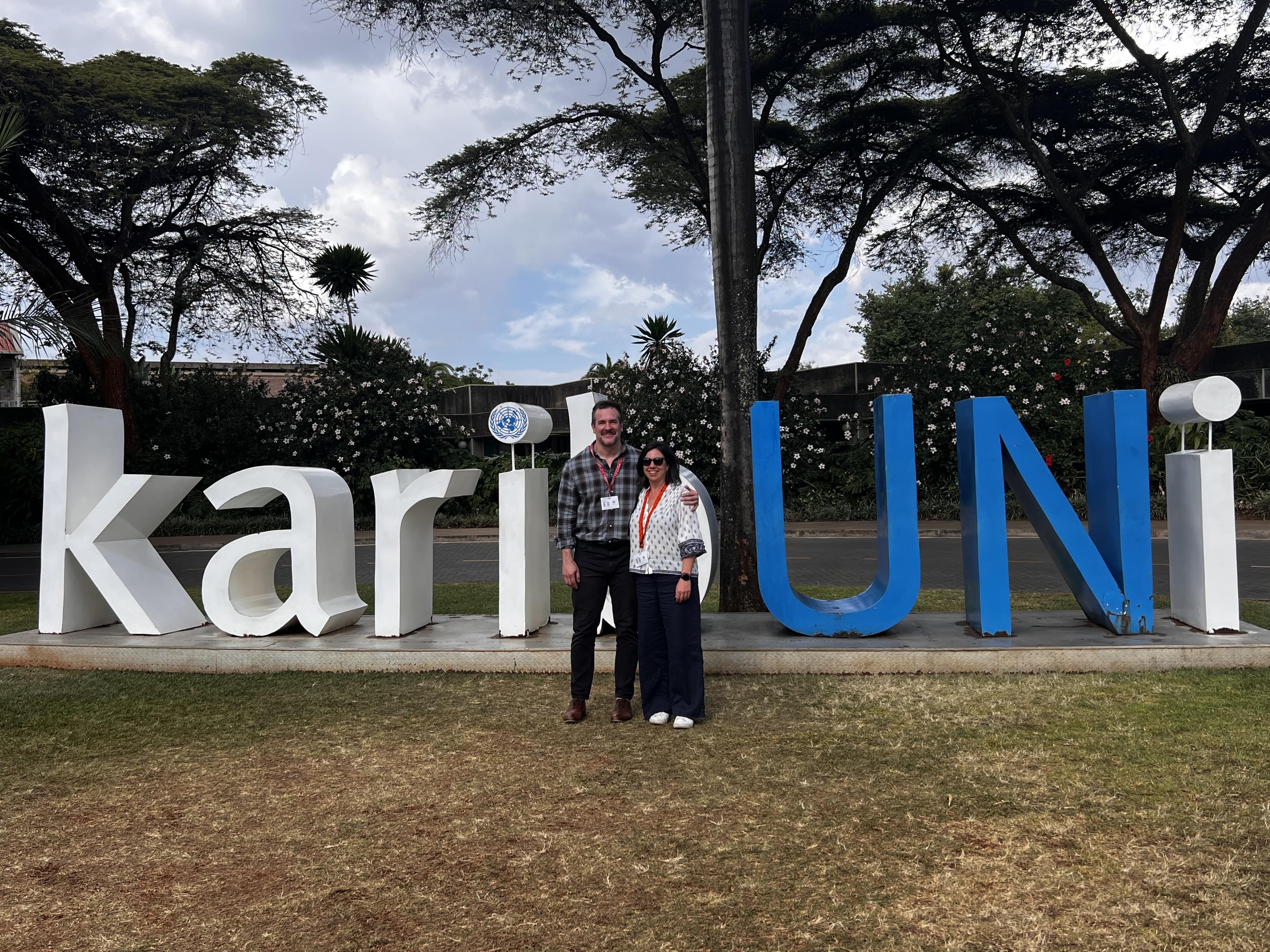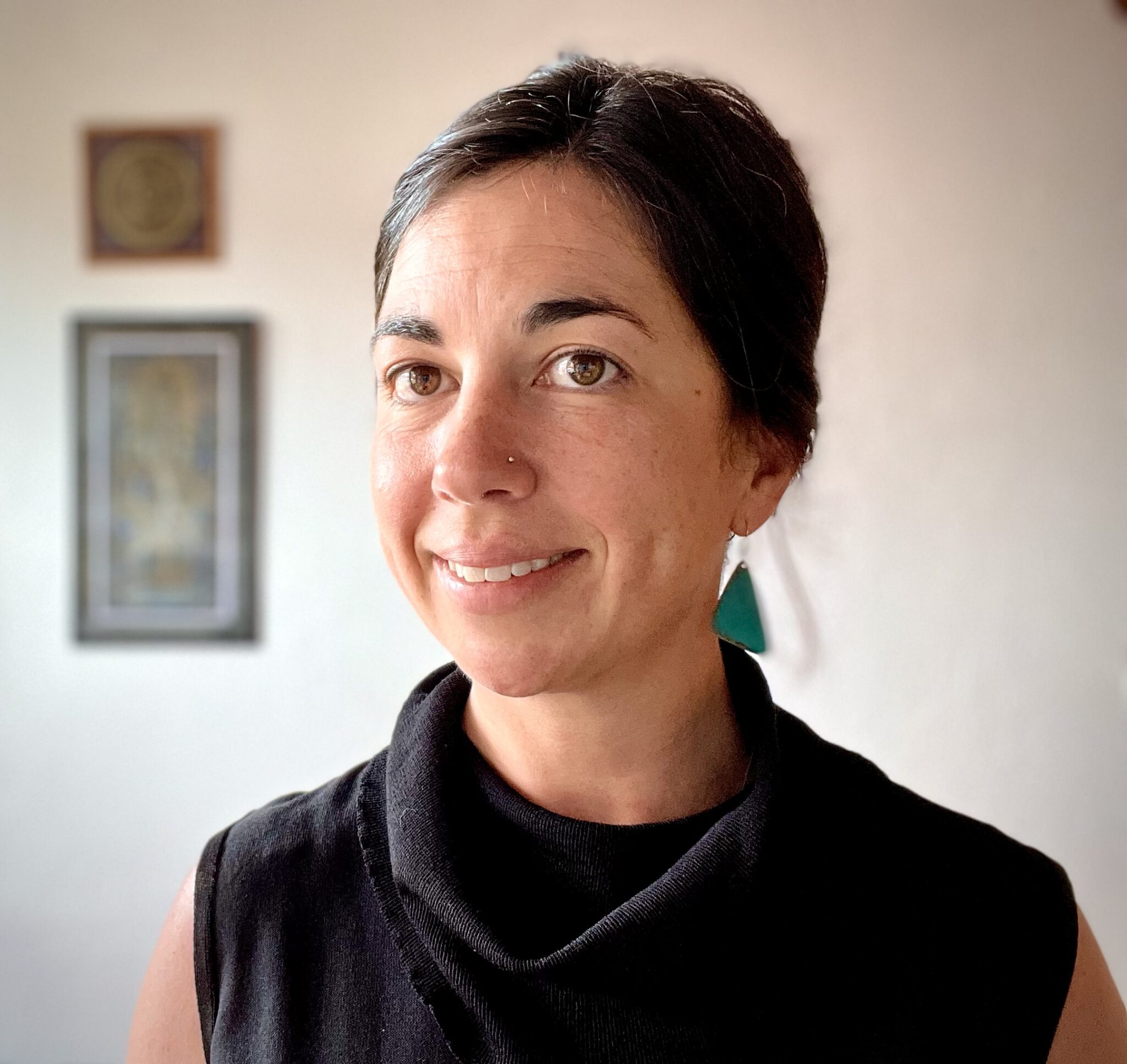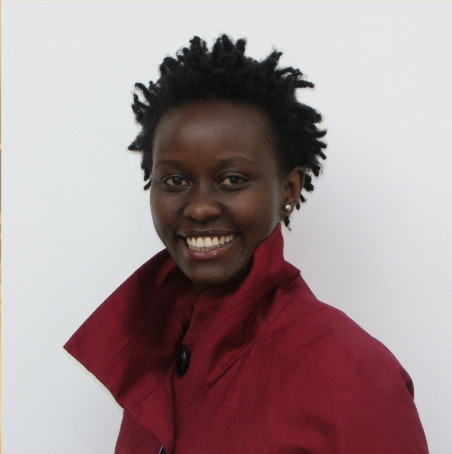Confronting Climate Realities and Deliberating SRM at Climate Week NYC

This year’s Climate Week NYC unfolded as a blur of convenings and conversations designed to keep climate action alive, even as U.S. leadership sought to slow momentum. The backdrop was striking: just blocks from most Climate Week sessions, the U.S. president addressed the United Nations (UN) General Assembly, describing climate change as a “hoax” and warning that countries that continue investing in clean energy “are going to fail.”
This contrast couldn’t be sharper. Inside Climate Week, organizers posed urgent questions and mapped potential futures; outside, decisions have been delayed, scientists dismissed, and information — down to the language of climate science itself — faces scrutiny and censorship.
Moments like these underscore why growing conversations about solar radiation modification (SRM) must be inclusive, transparent, and focused on building awareness and capacity—so that people and communities can develop their own perspectives and participate meaningfully in shaping and understanding research. As the world struggles—or, in some cases, retreats—on mitigation and adaptation, the likelihood that SRM will enter public and policy discussions grows. That makes proactive, transparent dialogue essential before decisions are made under pressure or without accountability. Just and inclusive deliberation can’t fix every divide, but it can help ensure that any future consideration of SRM remains accountable and centered on those most affected.
DSG took part in several SRM-focused events throughout the week, onstage and in the audience. Sessions hosted by NGOs, universities, and advocacy groups invited participants to examine SRM from multiple angles, from modeled impacts to guardrails for responsible research to strategies for strengthening governance capacity. One throughline stood out: we still have real work ahead to build the legitimacy and agency needed to confront the devastating realities of climate change and to decide, openly and thoughtfully, if and how SRM can play a role in the world's response to climate change.
Deliberating Solar Geoengineering Research and the Next Steps for Civil Society
On Wednesday, September 24, DSG and the Chesapeake Climate Action Network (CCAN) convened a session for climate justice advocates, environmental leaders, and experts to deliberate SRM research and governance in good faith. The event, held on a rooftop in bustling midtown Manhattan, brought the discussion from behind closed doors and into the fresh air. Two panels, moderated by Mike Tidwell and Michael Thompson, brought together civil society speakers to reflect on their views of risk, vulnerability, and the role of SRM. A town hall opened the floor to even more perspectives.
Watch the session recording - click here.
The first panel, Perspectives on SRM from Across the Climate Movement, revealed how different advocacy traditions view SRM. Natasha Vidangos of EDF and Quentin Scott of CCAN explained why their organizations came to the conclusion that the science of SRM warrants careful study. They emphasized a “risk versus risk” frame, which weighs the risks of pursuing SRM against the risks of not pursuing it in a worsening climate crisis, as more useful than casting it as a solution versus the status quo.
Even leaders from groups that had no formal positions on SRM, including Stephen Smith of the Southern Alliance for Clean Energy and Rev. Lennox Yearwood Jr. of the Hip Hop Caucus, said that the severity of the climate crisis warrants serious scrutiny of SRM. Leveraging lessons from his work as a veterinarian, Smith emphasized the guiding tenet “first, do no harm” as a key ethical principle to apply in this space. And while all of the panelists uniformly expressed discomfort with deployment, they agreed that thoughtful engagement is essential, and that all stakeholders must have a seat at the table. To that end, they urged learning from past justice failures to ensure that diverse voices have a meaningful influence in shaping future decisions.
The second panel, Justice and Exposure in the SRM Conversation, explored how lived experience and community context shape perspectives on vulnerability, historical responsibility, and precaution in a world already facing severe climate-related impacts. Because facts land differently across geographies and levels of exposure, panelists agreed communities should have the agency to weigh trade-offs on their own terms.
With the stakes defined, the focus then turned to how to do this work responsibly. DSG’s Shuchi Talati noted the need to align academic work with the questions communities are asking and install practical guardrails to protect against SRM being co-opted by profit or control. Ture Laiti of Operaatio Arktis emphasized the principles of free, prior, and informed consent as non-negotiables in indigenous community engagement. And Climate Hub’s Ricken Patel, returning to the discussion of “first, do no harm,” stressed that neither action nor inaction is risk-free — and, understanding this, climate activists should help communities make informed choices while resisting utopian fantasies.
The week closed on a note of hope and a reminder of why this work matters. As Shuchi Talati noted, “There are still pockets of light in these dark and challenging times, and they are most visible in the people still working and striving towards a common good.”
Join Our Community
Stay informed about the latest developments in solar geoengineering and how you can make a difference. Subscribe to our newsletter for insights, updates, and opportunities to get involved.

.jpg)


.jpg)
.jpg)
.png)

.jpg)

%20(1).jpeg)